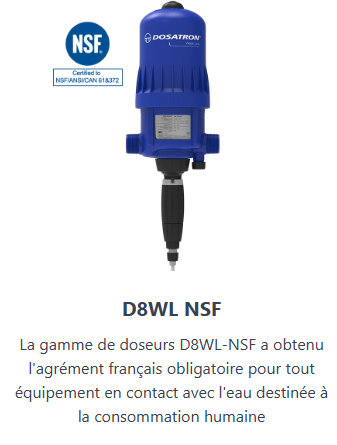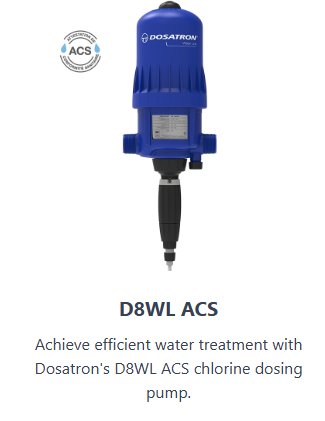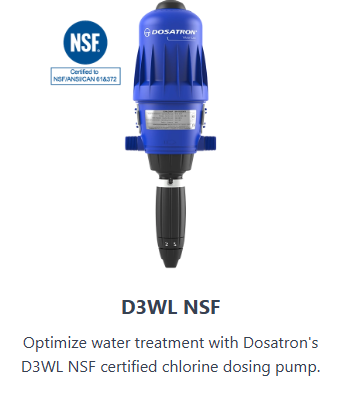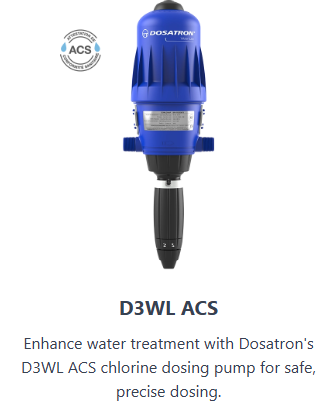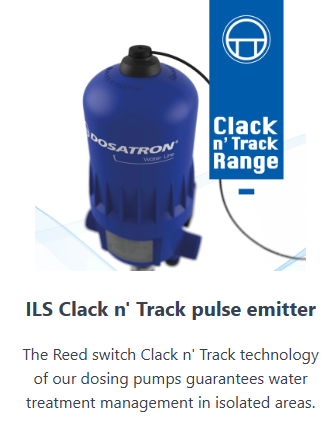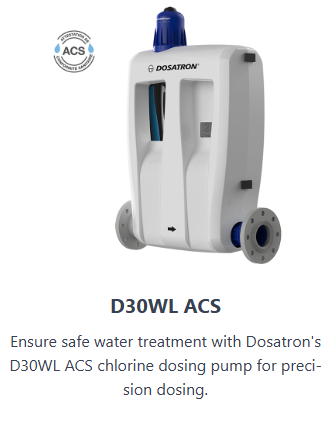Drinking water treatment
Manufactured by Dosatron - Chlorine Dosing Pumps
Drinking Water Treatment: A Global Challenge 2.6 billion people worldwide lack access to safe drinking water. This global issue necessitates reliable and adaptable treatment equipment, particularly for: Small communities avoiding chlorine gas. Rural areas. Emergency water supply. These systems must meet health standards and guarantee stable service to the population.
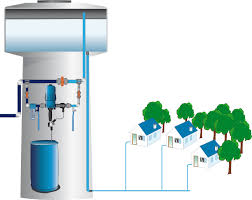
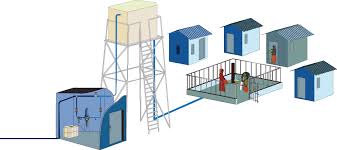
Dosatron Chlorine Dosing Pump
The Dosatron Chlorine Dosing Pump is a water-powered dosing system, installed directly on the water line. How It Works The system uses the water's pressure and flow to drive an engine piston connected to a metering piston. This ensures chlorine (or other chemicals) is continuously and proportionally injected into the water, regardless of variations in flow rate or pressure. Key Features Dose is directly proportional to the volume of water flowing through the pump. Self-priming up to 4 meters. Guarantees dilution consistency. Allows direct reading and easy adjustment of the dosage.
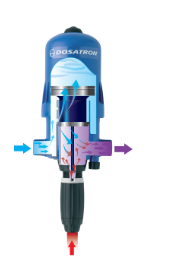
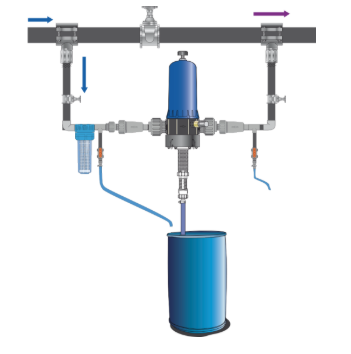
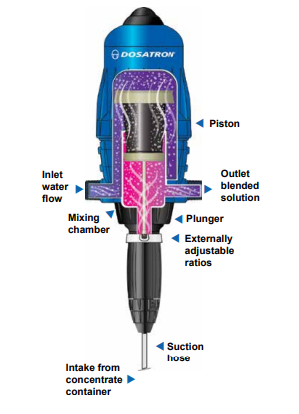
Advantages of a Dosatron Chlorine Dosing Pump
Advantages of the Dosatron Chlorine Dosing Pump Precise: Injection rate is independent of water pressure or flow rate. Versatile: Compatible with low gravitational pressure (reservoirs, springs). Easy to Use: Injection rate is easy to regulate and is repeatable. Cost-Effective: Low operating and maintenance costs. Practical: Easy on-site maintenance and portable (e.g., for Emergency Skids). Why Certification (ACS/NSF) is Important Using a certified Dosatron pump is crucial for safe drinking water because: Destroys Pathogens: It injects a proportional dose of chlorine (NaClo, CaClo) to destroy organic matter like viruses and microbes in the water. Ensures Residual Disinfection: The pump ensures a portion of chlorine remains as free residual chlorine. This persistent sanitizer treats future infections within the network and homes. Meets Standards: This residual chlorine level is essential for meeting safety guidelines (e.g., WHO recommends 0.2 to 0.5 mg/l of free chlorine in treated drinking water).
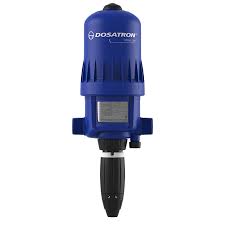
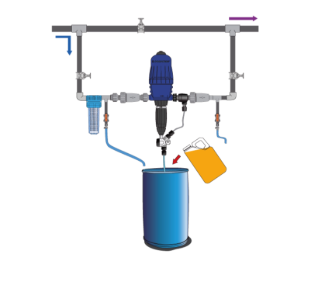
Recommended Certified Chlorine Dosing Pumps
